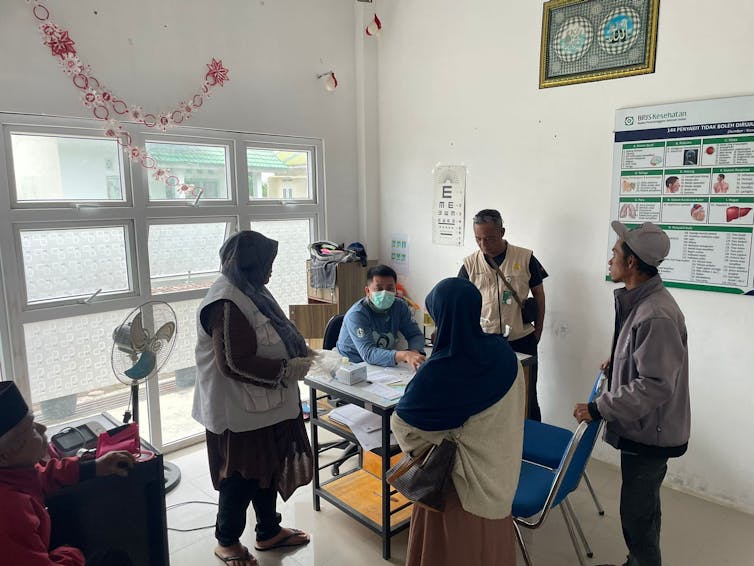SDK Formulates 'Long-term Vision (2021-2030) for Newly Integrated Company'
- Written by ACN Newswire - Press Releases

Since making Showa Denko Materials a consolidated subsidiary on April 28 of this year, Showa Denko has been developing its Long-term Vision in order to integrate the two companies as soon as possible and establish a foundation for future growth.
Showa Denko and Showa Denko Materials are committed to providing new functions and value as an integrated company (the Company) in the chemicals industry where intensification of global competition and changes in market structure are expected to go forward, thereby contributing to the realization of a sustainable society.
1. Long-term Vision and synergy for Newly Integrated Company
(1) Purpose and Ideal state
In terms of purpose, the Newly Integrated Company will seek to "change society through the power of chemistry." This includes contributing to the sustainable development of global society by creating functions required of the times as an advanced material partner. In addition, the Company will strive to become a company with a "strong presence in the global market" and that "contributes to a sustainable global society," which are the two things the Company aims to achieve in terms of its Ideal state in order to fulfill its purpose.
Currently, global demand for solutions to environmental and social issues and contributions to SDGs is driving the need for the renewal of various social infrastructure such as digital infrastructure, mobility and energy. In this context, expectations for innovation by materials manufacturers are growing.
By integrating the two companies, the Showa Denko Group (the Group) will meet these societal demands and expectations of its customers head on. It will provide onestop solutions and new functions to its customers and contribute to a sustainable society as a whole as a "global top-level functional chemical manufacturer" that will realize a breakthrough by fusing Showa Denko's midstream materials technologies, Showa Denko Materials' downstream application technologies and both companies' evaluation and analysis technologies.
(2) Portfolio management
To realize its Ideal state, the Showa Denko Group will leverage its highly complementary business portfolio built through the integration of the two entities. It will continue to provide new functions to the market and realize continuous growth by having its four business categories - "Core Growth" business, "Next-Generation" business, "Stable Earnings" business and "Fundamental Technologies/Materials" business - each plays a different role with a competitive advantage commensurate with their respective roles.
"Core Growth" business - Electronics, MobilityBusiness that possesses overwhelming scale/top-share products in growing markets and which will sustain the Group's future growth
"Next-Generation" business - Life ScienceBusiness in an advantageous position that can lead to future growth in promising markets, and that will be developed into a next-generation pillar
"Stable Earnings" business - Carbon, Petrochemicals, Device Solutions, Industrial Gases, Basic Chemicals, Aluminum Rolled Products, Aluminum Cans, Coating Materials, Electronics Materials, EnergyBusiness which earns a stable profit and generates investment capital with competitiveness/high share in markets where competitive landscape is stabilizing
"Fundamental Technologies/Materials" business - Ceramics, Functional Chemicals, Aluminum Specialty ComponentsTechnology platform business to support innovation of other businesses with a wide range of inorganics, organics and aluminum technologies that support the competitiveness of the other three business categories
In particular, by strengthening the competitiveness of each of the business categories with the wide range of technologies and materials offered by the "Fundamental Technologies/Materials" business, and by continuing to refine such technologies and materials across a variety of businesses, the Group will expand its presence in new and promising future markets.
(3) "Core Growth"/"Next-Generation" businesses
The "Core Growth" and "Next-Generation" businesses will drive the Showa Denko Group's future growth. The Group will pursue business development with a good understanding of differences in market stages and our position in each business.
Electronics:With the prospect of continuous technological innovation and market growth, the market is expected to remain fiercely competitive. However, the direction of technological development is set and rapid structural changes and new entries in the industry are less likely to occur. As the world's No. 1 semiconductor materials manufacturer[1], with sales of around 200 billion yen, the Showa Denko Group is in the top position, far ahead of all other players in terms of business scale, and offers a broad product portfolio that boasts global top-level competitiveness and share in both wafer and packaging processes. Through the integration of the two companies, the Group will meet the expectations of its customers and win in growth markets by continuing to develop cutting-edge products and provide one-stop solutions with its enhanced technological capabilities.Note 1: The Showa Denko Group statistics; does not include silicon wafers
Mobility:With both future areas of high certainty and areas of uncertainty co-existing in the changing marketplace, the Showa Denko Group envisages that competition for the top position by multiple materials manufacturers will continue. The Group will manage certainty and uncertainty with its portfolio of businesses, by leveraging global top share products and its product line-up enhanced through integration, such as businesses that capture the highly certain trend of vehicle weight reduction against the backdrop of greenhouse gas reduction (multi-materials/resin molded automotive module business), businesses that capture the shift to electrification which is a trend that ranks alongside weight reduction (heat management materials packages business for Si power devices), and among the shift, businesses that seek to prepare for uncertainty of outlook for penetration of each powertrain which is driven by national policies in each country (LiB materials business, heat management materials packages business that maximizes performance of SiC power module) etc.
Life Science (Regenerative Medicine):While the market is expected to grow significantly in the future, there is a wide range of views when it comes to expansion timelines and segments, and there are still a limited number of players in the market. Amid this, the Showa Denko Group will not only pursue growth by leveraging its first-mover advantage, including its global top-class contracting track record and know-how, global production structure that includes three sites in Europe, Asia and North America and was established ahead of other players, and development of pioneering manufacturing technology aimed at cost innovation, it will also build a medium-to-long-term competitive advantage by swiftly capturing future changes in the market.
Among "Core Growth" and "Next-Generation" businesses, the Showa Denko Group has positioned the following five businesses as "growth businesses" that will drive the Group's growth over the medium to long term.
- Electronics: Semiconductor wafer process business, semiconductor packaging process business- Mobility: Multi materials/resin molded automotive module business, heat management (power module) business- Life Science: Regenerative medicine business
Cumulative sales for the above five growth businesses totaled approximately 230 billion yen in 2020, and the Group will seek to expand business scale to 600 billion yen by 2030 while achieving CAGR of 10% through innovations including technological synergies. In addition, it will generate an additional 18 billion and 48 billion yen in operating income in 2025 and 2030, respectively, through innovations that includes synergies across these five businesses.
(4) Technology fusion through integration
As a hybrid advanced material company combining midstream materials technology and downstream application technology, the Showa Denko Group will realize innovations centered on its growth businesses by integrating the technologies of both companies after integration. In addition to strengthening and creating businesses through the ongoing provision of a wide range of functions to the market through the fusion of three chemical technologies, namely "chemistry to synthesize," which encompasses Showa Denko's midstream materials, "chemistry to formulate," which constitutes Showa Denko Materials' downstream applications, and "chemistry to think," which includes both companies' evaluation/simulation technologies, structure analysis and computational science, the Group will continue to enhance its technology through its businesses, and with this virtuous cycle achieve self-directed portfolio reform and sustained high growth.
In order to increase earnings, with a focus on the five growth businesses mentioned above, the Showa Denko Group will work to realize synergies through the integration of products and technologies of the two companies, as exemplified by the following examples, and achieve business growth rates that exceed market growth in each business.
Semiconductor wafer process business: With performance of semiconductors becoming faster and higher than ever before, there is a need for technological innovation in semiconductor materials. While players such as GAFA have started to approach material manufacturers as they seek to manufacture key devices in-house, indicating that the growing importance of materials-related innovation, achieving breakthroughs in materials technology is becoming increasingly difficult each year. In this context, the Showa Denko Group will continue to meet the needs of its customers by breaking through technology trade-offs through the combination of technologies of both companies. For example, in the case of CMP slurry, a material used for smoothing and flattening semiconductor substrates in the semiconductor device manufacturing process, the Group is developing a next-generation product that combines a high removal rate and scratch reduction by utilizing Showa Denko's abrasive technology for Showa Denko Materials' "ultra-low-scratch Nano-ceria Slurry."
Semiconductor packaging process business: As a result of trends such as the adoption of 5G and laminates, two aspects of technological innovations are required simultaneously - functional sophistication of individual semiconductor-related materials, and new packaging configurations and processes. The Showa Denko Group will leverage its "Packaging Solution Center," which is highly regarded by semiconductor manufacturers, to provide new value to its customers by combining materials based on evaluation technology, and will undertake the development of cutting-edge, next-generation products that combine technologies from both companies. For example, when it comes to laminate materials, the Group will develop next-generation products that combine Showa Denko Materials' copper clad laminates with Showa Denko's resin design technology and filler technology.
Heat management (power module) business: With a shift to electronic control of vehicles, it is expected that new heat control challenges will occur and partial outsourcing by power module manufacturers will begin. The Showa Denko Group will address the technological challenges and needs of its customers by expanding its lineup of heat management materials and combining materials leveraging analysis and module evaluation technologies. Going forward, the Group will also consider promoting heat management materials packages that draw out the potential of SiC by leveraging SiC epitaxial wafer business.
(5) Contribution to SDGs
The Showa Denko Group has established and follows Our Code of Conduct, which defines what each and every employee should do for the sustainable development of the international community and the Group itself. In addition, the Group will pursue business activities in accordance with the 17 Sustainable Development Goals (SDGs), will contribute to SDGs through various technologies and businesses, and further strengthen ESG efforts.
Examples of post-integration contribution to SDGs through various technologies and businesses:
- Optimize electric-power/resource consumption by offering next-generation semiconductor materials etc.- Increase resources efficiently/reduce greenhouse gases through chemical recycling of used plastics- Contribute to CO2-free energy creation through hydropower generation- Promote effective use of iron resources by supplying graphite electrodes for electric furnaces- Reduce greenhouse gases through mobility weight reduction/electrification- Improve QOL through Life Science business
2. Long-term numerical targets
(1) Thinking behind long-term numerical targets
Showa Denko's business philosophy aims to enhance value provided by the Group with the aim of satisfying all stakeholders, such as employees who drive value creation, shareholders, customers, and business partners.
Showa Denko Group Business Philosophy"We at the Showa Denko Group will provide products and services that are useful and safe and exceed our customers' expectations, thereby enhancing the value of theGroup, giving satisfaction to our shareholders, and contributing to the sound growth of international society as a responsible corporate citizen."
In creating its Long-term Vision, Showa Denko has set Total Shareholders Return (TSR), which is a comprehensive indicator of corporate value enhancement, EBITDA margin, net D/E ratio, and other indicators as long-term numerical targets for the newly integrated company, and is committed to their achievement.
(2) Long-term numerical targetsPlease see www.sdk.co.jp/assets/files/english/news/2020/20201210_sdknewsrelease_e.pdf
(3) Profit improvement drivers through 2025
Although Showa Denko anticipates 2020 EBITDA margin of 8% (which it is on track to achieve; on an annualized basis), from 2021 onwards, the company will raise EBITDA margin to 15% by 2025 through business growth centered on Electronics and Mobility, aforementioned innovation initiatives, and structural reforms. In addition to these efforts, it aims to achieve EBITDA margin of 20% that factors in recovery from the impact of COVID-19 and market fluctuations. Even if market conditions deviate from expectations, the company will recover through business restructuring and additional structural reforms to achieve EBITDA margin of 20%.
(4) Shareholder return policy
In regards to distribution of cash generated through future business growth, the Showa Denko Group will factor in the situation after integration, and for the time being, strive to pay out dividend as stably as possible, while prioritizing growth investment for profit growth and bringing net D/E ratio close to 1.0 times. In addition, the company will aim for total return ratio of 30% over the medium to long term.
(5) Thinking behind compensation system
To ensure that the Showa Denko Group's management team is committed to collectively achieving Group objectives and enhancing corporate value, Showa Denko intends to link a portion of executive compensation to management indicators. Although specific indicators and weighting for each item are under consideration, the company anticipates linking compensation to KPIs such as TSR, EBITDA margin, ROE and net D/E ratio.
3. Short-term synergy
In order to realize continuous growth of the Showa Denko Group, it is important for the Group to carefully select its business portfolio and maximize organizational productivity.
As part of these efforts, the company will steadily restructure its business portfolio, improve profit structure, streamline assets, and fully integrate organizations over the short-to-medium term between now and 2023.
(1) Business portfolio restructuring
As part of business portfolio restructuring, Showa Denko is considering and negotiating the sell-off of multiple business. In terms of sale price, it envisages theequivalent of 200 billion yen on an enterprise value basis.
(2) Profit structure improvement initiatives and asset streamlining
1) Profit structure improvement initiativesAs profit structure-related synergies arising from integration of the two companies, Showa Denko Group is considering a series of six key initiatives, including reducing procurement and logistics costs, improving productivity, and reducing operational headcount by about 1,500 employees, in addition to improving sales-related profit, with the aim to achieve an impact of 28 billion yen on the current profit structure by the end of 2023.
Sales-related profit improvement (Review sales policy for customers/agents, etc.) Approx. 3 bil. yenProcurement/logistics cost reduction (Consolidate common materials/logistics-related suppliers) Approx. 3 bil. yenProductivity improvement (Improve productivity of production lines) Approx. 2 bil. yenRent reduction (Reduce rent by consolidating head offices) Approx. 1 bil. yenReduction of other costs (Reduce common costs, SG&A, etc.) Approx. 7 bil. yenOperational optimization (Carry out structural reforms through organizational integration and operational efficiency improvement) Approx. 12 bil. yen
Showa Denko will achieve a cumulative impact by also steadily implementing initiatives such as increasing profit through new product development and crossselling as well as the consolidation of operation sites, which have not been incorporated into the above initiatives.
2) Asset streamliningAs part of initiatives toward greater financial health aimed as recovery from the impact of the deteriorating economic environment, Showa Denko is steadily streamlining assets, and forecasts 50 billion yen for immediate countermeasures through 2021. At the same time, the company also intend to consider additional initiatives over the medium to long term.
Reduction of working capital (Compress inventory through supply chain improvement, etc.) Approx. 25 bil. yenSell-off of marketable securities (Sell off cross-shareholdings) Approx. 20 bil. yenSell-off of other assets (Sell off shares of affiliates and excess assets) Approx. 5 bil. yen
(3) Organizational/business integration and restructuring
Showa Denko will integrate and restructure its own businesses as well as Showa Denko Materials' businesses, based on the respective strategic business positioning of the above-described Core Growth, Next-Generation, Stable Earnings, and Fundamental Technologies/Materials businesses.
- Core Growth: Electronics, Mobility- Next-Generation: Life Science- Stable Earnings: Carbon, Petrochemicals, Device Solutions, Energy, etc.- Fundamental Technologies/Materials: Functional Materials
In addition, the Showa Denko Group is leveraging its global research and development hub "Stage for Fusion" (Kanagawa Ward, Yokohama City), construction to be completed in spring of 2022, to conduct a joint initiative between head office functions aimed at creating and promoting new ESG-oriented research and development themes by fusing diverse technological specialties of both companies.
The Showa Denko Group is making steady progress on PMI toward integration, with the milestone of integration as a corporate entity in January 2023, following substantive integration in July 2021 (unification of chain of command/integration of corporate functions) and integration of head offices in October of the same year.
Long-term Vision for Newly Integrated Company (2021-2030)https://bit.ly/39Z6tHg
About Showa Denko K.K.
Showa Denko K.K. (SDK; TSE:4004, ADR:SHWDY) is a major manufacturer of chemical products serving from heavy industry to computers and electronics. The Petrochemicals Sector provides cracker products such as ethylene and propylene, the Chemicals Sector provides industrial, high-performance and high-purity gases and chemicals for semicon and other industries, the Inorganics Sector provides ceramic products, such as alumina, abrasives, refractory/graphite electrodes and fine carbon products. The Aluminum Sector provides aluminum materials and high-value-added fabricated aluminum, the Electronics Sector provides HD media, compound semiconductors such as ultra high bright LEDs, and rare earth magnetic alloys, and the Advanced Battery Materials Department (ABM) provides lithium-ion battery components. For more information, please visit www.sdk.co.jp/english/.
Contact:Showa Denko K.K., CSR & Corporate Communication Office, Tel: 81-3-5470-3235
Copyright 2020 JCN Newswire. All rights reserved. www.jcnnewswire.com
Authors: ACN Newswire - Press Releases
Read more //?#





